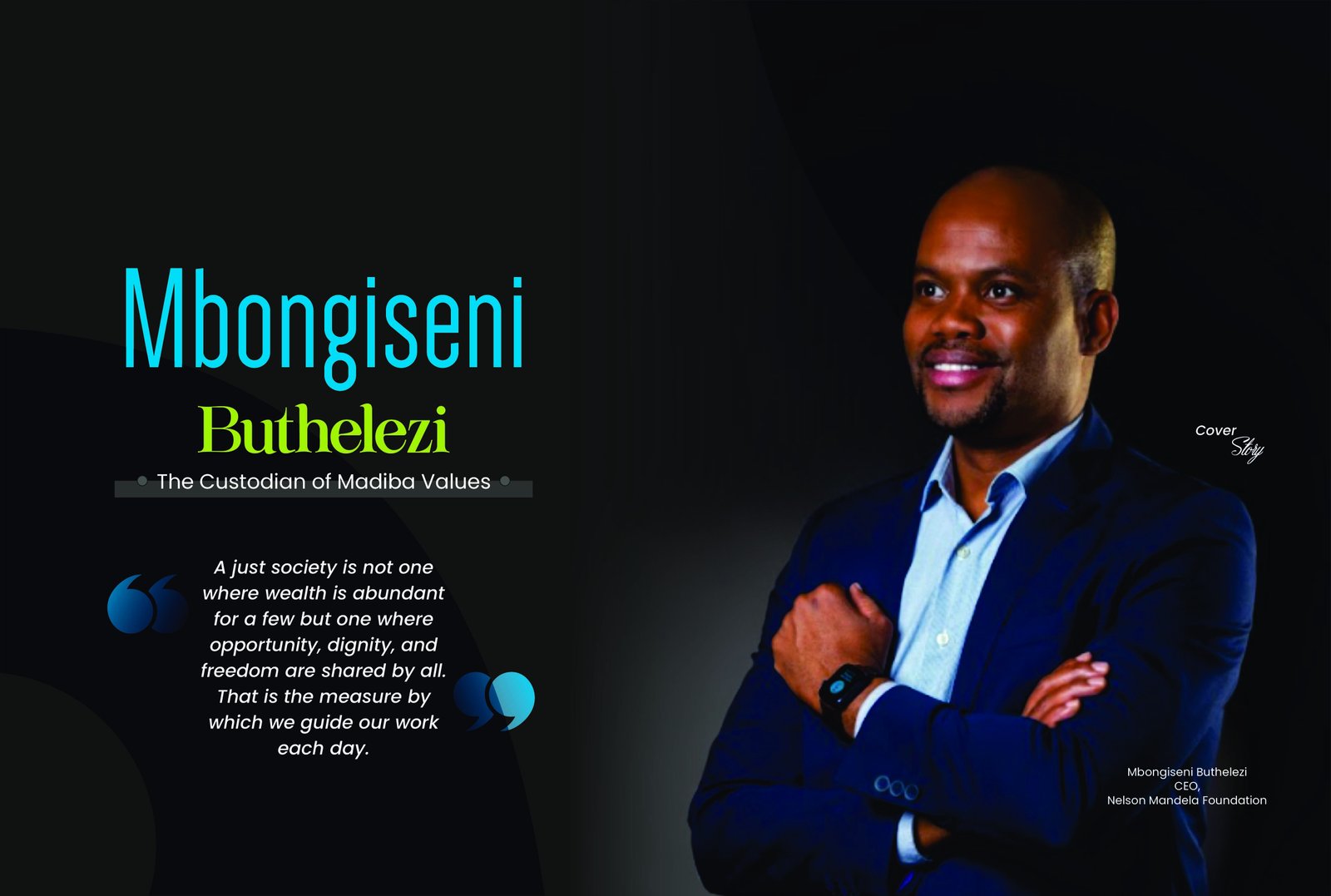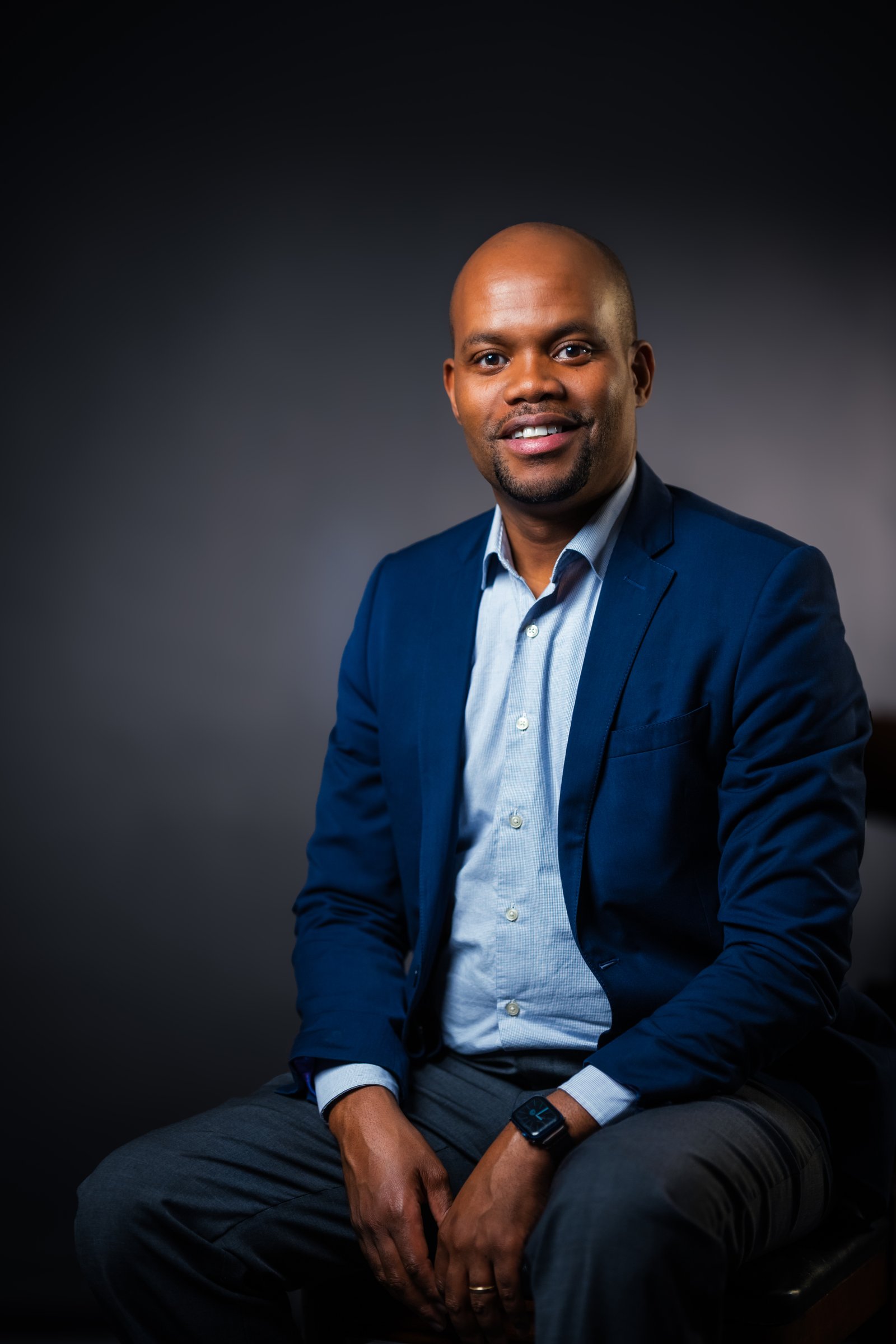
Mbongiseni Buthelezi: The Custodian of Madiba Values
Nelson Mandela’s legacy is not
confined to the history books. It breathes in every struggle for freedom,
echoes in every demand for dignity, and resonates in every call for justice.
His life was proof that courage could bend the arc of history and that
dialogue, even with one’s fiercest adversaries, could transform conflict into
hope. Today, as greed, division, and indifference deepen the fractures of our
societies, Mandela’s principles of humanity, equality, and active citizenship
shine brighter than ever. They remind us that the fight for justice is never
complete, and that preserving his values is not an act of remembrance alone but
a necessity for survival.
Carrying this responsibility with
both reverence and resolve is Professor Mbongiseni Buthelezi, who leads
the Nelson Mandela Foundation. Under his stewardship, the Foundation
does not allow Mandela’s legacy to rest in memory but brings it alive in the
service of justice, dialogue, and social change. Through research, advocacy,
and community engagement, the organisation transforms Mandela’s vision into
action, ensuring that his life’s work continues to shape new generations. It
stands as a living force, committed to keeping the spirit of Madiba not only
remembered but actively at work in the world today.
Carrying Forward Madiba’s Torch
For Mbongiseni, leading an
organisation so deeply rooted in Nelson Mandela’s legacy is both a privilege
and a profound responsibility. He views it as a unique opportunity to
contribute to building a better society and a better world by continuing the
work Madiba began. Standing on the shoulders of such a giant fills him with
immense honour. At the same time, he recognises the responsibility of upholding
values-based leadership in an age when power is often misused to oppress and
advance narrow interests, causing untold suffering.
Carrying
the Flame from Service to Justice
The Foundation’s journey has
evolved remarkably since its beginnings as Mr Mandela’s post-presidential
office. Mbongiseni explains that it was initially created to support whatever
work Madiba chose to pursue and could raise funds for. This included projects
ranging from the building of schools and clinics to involvement in the Burundi
Peace Process. In the early 2000s, the Foundation also became a platform for
key dialogues on HIV/AIDS.
By 2004, the organisation began
to refocus, housing its education initiatives in the Nelson Mandela Institute
for Rural Development and Education at the University of Fort Hare and passing
on HIV/AIDS work to other organisations. As Madiba started withdrawing from
public life in 2007, he gave the Foundation a fresh mandate: to serve as a
social justice organisation dedicated to peace, democracy, and human rights in
South Africa and across the globe through research, dialogue, and advocacy. He
also tasked it with maintaining a Centre of Memory on his life and times as a
place of dialogue.
When xenophobic violence erupted
in 2008, the Foundation turned to community-level dialogues to counter
polarisation and foster safe environments for displaced people. Over time, its
work expanded to include initiatives in early childhood education, food
security, and equitable land access. Today, Mbongiseni describes the Foundation’s
role as “making good trouble” in pursuit of just societies.

Living the Vision of a Just
Society
The Foundation’s vision of “a
just society, one which learns from its pasts and listens to all its voices” is
at the core of Mbongiseni’s leadership. He notes that in the past year the
vision has been refined to define its purpose as mobilising Nelson Mandela’s
legacy to help create just societies.
For him, just societies are those
in which everyone can realise their potential without being held back by
poverty, race, sexual orientation, disability, age, or geographic origin. Such
societies ensure equity of opportunity, human rights, democracy, and peaceful
coexistence.
Mbongiseni affirms that this vision guides the Foundation’s daily decisions and actions. The team strives to work in ways that are fair, just, and ethical, embodying the very values that Madiba stood for. Upholding professionalism of the highest standards is not simply an internal goal but a way of honouring Mandela’s legacy and advancing his dream of a just society.
A Legacy Alive in Every Page and Voice
Mbongiseni sees the Nelson Mandela Centre of Memory as both a guardian of history and an active space for shaping the future. He explains that the Centre houses Madiba’s personal papers, his art collection, and the many gifts he received during his lifetime. These collections were entrusted to the Foundation by Madiba himself to be preserved in perpetuity. One of the most symbolic elements within the Centre is Mandela’s office, which has been maintained exactly as it was on his final working day in November 2010, offering visitors a direct connection to his presence.
The Centre is open to the public, giving people the opportunity to engage with a permanent exhibition on Mandela’s life. In addition to this physical archive, Mbongiseni highlights the Foundation’s efforts to digitise the collections, progressively making them available online so that people across the globe can access this invaluable history. A dedicated reading room also provides a space for researchers to study the collections, while the Foundation actively supports scholars, filmmakers, journalists, and members of the public in their pursuit of accurate information about Mandela’s life and times.
Yet the Centre is more than a repository of memory. It is also a vibrant venue for activities that look toward the future. The Foundation regularly hosts meetings and dialogues on pressing social issues, ensuring that Mandela’s legacy continues to inspire solutions for today’s challenges. One example is the “Making Reading Fun” programme, which invites young people to the Centre each month to enjoy storytelling sessions with established or emerging authors. For Mbongiseni, this combination of history, research, youth engagement, and dialogue ensures that the Centre is not merely a museum of the past but a living resource for generations to come.
Mandela’s
Enduring Language of Change
For Mbongiseni, dialogue is not
only central to the Foundation’s mission but also vital to South Africa’s
future. He stresses that genuine dialogue is the starting point for solving
complex social challenges. It requires careful examination of the problems at
hand and the courage to bring people with differing views into the same room,
even when conversations are difficult. He observes that there are not enough
spaces in South Africa where people truly listen to one another and work
together to find meaningful solutions.
The Nelson Mandela Foundation,
however, has built a strong reputation as such a space. With years of
experience in convening and facilitating dialogues, it has become a trusted
platform for conversations on issues as diverse as early childhood development,
land reform, and even international concerns such as peace in Gaza. By creating
safe spaces for people to engage deeply, the Foundation aims to counter the
growing polarisation that threatens societies worldwide. Mbongiseni warns that
without genuine dialogue, the alternatives are stark. Continued fragmentation,
hostility, and violent conflict would become the default path.
An
Activist Spirit for an Unjust World
Balancing Mandela’s enduring
legacy with the urgent issues of the present is a responsibility that
Mbongiseni approaches with great care. He is quick to remind people that
Mandela was not a static figure defined only by peace and reconciliation.
Instead, Mandela was a leader who evolved over time, shaped by self-reflection,
self-critique, and constant engagement with differing viewpoints. His writings
reveal a man who grew through struggle, conflict, and dialogue with others,
even those he fundamentally disagreed with.
Mbongiseni reflects on the many
facets of Mandela. There was the fiery young activist who engaged in heated
debates and confrontations. There was the revolutionary on trial who defiantly
declared his readiness to die for his ideals. There was the statesman who
emerged from prison able both to speak sharply to F.W. de Klerk and to calm
erupting violence in KwaZulu-Natal. There was also the President who remained
an activist at heart, unrelenting in his pursuit of freedom, equality, human
rights, and dignity for all people.
In today’s world, Mbongiseni
believes it is this activist side of Mandela’s legacy that must come to the
fore. With democratic cultures under siege and human rights increasingly
trampled upon, he insists that leaders must embody the same global commitment
to justice and humanity that defined Mandela’s life. He contrasts Mandela’s vision
with the greed, cruelty, and racism that in his view have dominated world
leadership in recent times. For him, the Foundation’s role is clear. It must
remind South Africa, Africa, and the wider world that Mandela’s legacy is not
only about reconciliation but also about courage, activism, and a relentless
pursuit of justice.